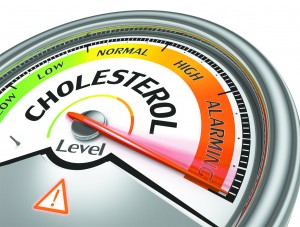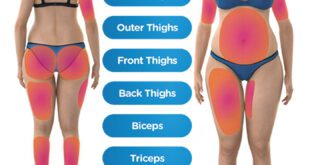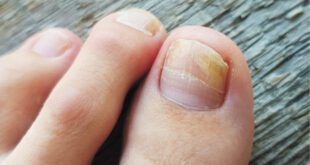 Has your doctor advised you to reduce your cholesterol level? That is no surprise considering how many people have high cholesterol these days.
Has your doctor advised you to reduce your cholesterol level? That is no surprise considering how many people have high cholesterol these days.
It seems that everyone is concerned about high cholesterol, and rightfully so. High cholesterol can cause clogged blood vessels, leading to heart attack and stroke. According to health experts, total cholesterol should be under 200 mg./dl. Between 200 and 239 is considered borderline high, and over 240 or above is considered high. These numbers are measures of total cholesterol, which is an indicator of cardiovascular health. However, in addition to total cholesterol, it is important that both the LDL, or bad cholesterol, be at a low level and that HDL, or good cholesterol, be at a higher level. Simply think of HDL as “healthy” and LDL as “lousy.” HDL actually helps carry cholesterol out of your blood vessels while LDL allows it to deposit inside your artery walls.
LDL Cholesterol is known as low density lipo-protein cholesterol. This type of cholesterol is bad for the body because it circulates in the blood stream and settles as plaque on the artery walls. Over a long period plaque can build up to a point where the artieries can narrow or close, leading to a heart attack or stroke. LDL cholesterol should be lower than 100 mg./dl.
Good cholesterol is known as HDL or high density lipo-protein cholesterol. This type of lipo-protein picks up cholesterol in the blood and brings it to the liver where it is broken down and passes out of the body. For this reason, it is desirable to have a high level of HDL. The desired level of HDL cholesterol differs in men and women. For men, the desired level of HDL is above 40 and in women the level should be above 50. Ideally HDL cholesterol should be at 60 or above for optimal health.
For most health related issues, diet and exercise are two of the most crucial components. What you eat is critical to lowering your cholesterol levels, so let’s focus on that for now.
Eating the proper foods can go a long way in preventing high cholesterol. Choosing lots of fresh vegetables and fruit can help lower the cholesterol because they contain fiber. Beans and legumes are also good choices. Whole grains like whole wheat and oats also help keep cholesterol low.
“Dietary and exercise recommendations are unique to each individual and should be prescribed by a medical provider. DNA also influences how one metabolizes fats and sugars. New technology allows us to determine your unique nutritional and exercise needs.
When cholesterol cannot be lowered enough to meet goals through diet and exercise alone, medical therapy may be necessary to reduce risk of heart attack and stroke. There are many medical therapeutic options now available with exciting new technology that dramatically lower cholesterol levels. ”
For more information about achieving and maintaining healthy cholesterol levels, or to schedule an appointment to have your cholesterol checked, call 352-351-4634 today.
American Family Medical
1750 SE 28th Loop, Ocala, FL 34471
(352) 351-4634
ocalafamilydoctor.com
Tags featured
Check Also
Essential Guide to Wound Care and Nail Care: Expert Advice from Ocala Podiatry
By Dr. Andrew Franklin, DPM, PH.D Taking care of your feet goes far beyond simply …
 Central Florida Health and Wellness Magazine Health and Wellness Articles of the Villages
Central Florida Health and Wellness Magazine Health and Wellness Articles of the Villages



